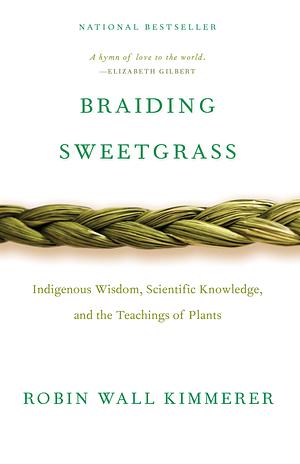You need to sign in or sign up before continuing.
Take a photo of a barcode or cover

390 pages • first pub 2013 (view editions)
ISBN/UID: 9781571313560
Format: Paperback
Language: English
Publisher: Milkweed Editions
Edition Pub Date: 11 August 2015

Description
As a botanist, Robin Wall Kimmerer has been trained to ask questions of nature with the tools of science. As a member of the Citizen Potawatomi Nation, she embraces the notion that plants and animals are our oldest teachers. In Braiding Sweetgrass...
Community Reviews

Content Warnings


390 pages • first pub 2013 (view editions)
ISBN/UID: 9781571313560
Format: Paperback
Language: English
Publisher: Milkweed Editions
Edition Pub Date: 11 August 2015

Description
As a botanist, Robin Wall Kimmerer has been trained to ask questions of nature with the tools of science. As a member of the Citizen Potawatomi Nation, she embraces the notion that plants and animals are our oldest teachers. In Braiding Sweetgrass...
Community Reviews

Content Warnings
